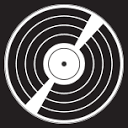
 All Music •
All Music •  Album of the Year (88%) •
Album of the Year (88%) •  Discogs •
Discogs •  FaceBook •
FaceBook •  Freebase •
Freebase •  Music Brainz •
Music Brainz •  Rate Your Music (3.62 / 5) •
Rate Your Music (3.62 / 5) •  WikiData •
WikiData •  Wikipedia
Wikipedia .png) Pitchfork •
Pitchfork •  Prog Archives
Prog Archives 
 All Music •
All Music •  Album of the Year (88%) •
Album of the Year (88%) •  Discogs •
Discogs •  FaceBook •
FaceBook •  Freebase •
Freebase •  Music Brainz •
Music Brainz •  Rate Your Music (3.62 / 5) •
Rate Your Music (3.62 / 5) •  WikiData •
WikiData •  Wikipedia
Wikipedia .png) Pitchfork •
Pitchfork •  Prog Archives
Prog Archives The debut Harmonia album is at once a product of their source bands and a fine new twist on them, resulting in music that captures what for many is the Krautrock ideal, or more accurately, the motorik ideal. It’s not Kraftwerk’s all-synth, clean, clinical pulse, nor Neu!’s seemingly effortless glide, nor Can’s stomping art world funk. Instead it’s at once playful and murky, steady and mechanical, a supergroup of sorts who easily achieves and maintains such a seemingly overstated status by embracing a variety of approaches that work wonders.
The players bring their usual multi-instrumental roles to the fore, ensuring that the end results achieve their own distinct sound – this isn’t simply Cluster with Rother’s assistance or Rother trying for a solo record with Cluster’s backing. For all that, there’s a touch more Cluster in the end – the spacier parts on Musik Von Harmonia have that duo’s hushed chill, the electronic percussion of Rother meanwhile avoids his familiar crisp punch using real drums in Neu! outside of the perky “Dino.” “Ohrwurm,” meanwhile, has a strung-out guitar grind nicely offset by a far more restrained wail in the background, further backed by delicate keyboards and tones.
When it comes to pure drift, the wonderful “Sehr Kosmisch” is the understandable winner, a nearly 11-minute-long piece that undeniably had to have been part of the attraction for Brian Eno in his later work with the band. A piano piece reminiscent of Eno collaborator Harold Budd drifts up and down through the mix of keyboard shimmers and electronic washes, resulting in a piece at once both meditative and gently rhythmic. Other songs, like “Veterano” and “Watussi,” suggest the electro-pop approach, which Kraftwerk inadvertently founded, but with their own quirky edge, rhythmic distortion, and guitar parts playing with the expected formula.
Musik von Harmonia, the group’s 1974 debut, was a precise meeting of their constituent parts – Roedelius’ eerie beauty, Möbius’ sense of tension, Rother’s cool exploration – with each member contributing to the sound equally. It’s a shade darker and a half-turn more tense than what would follow, and was also more crudely recorded. Tracks like “Sonnenschein” and “Watussi” are already underway when we first hear them, making them feel like they’ve always existed and go on forever. “Dino”’s trebly rhythm brings to mind Lou Reed’s hypnotic major-chord strum in the Velvet Underground, and on top of the rhythm bed Michael Rother’s leads seem guided more than played, like he’s directing the flow of water through a maze. The meditative “Ahoi” is both futuristic and folky with its piano chords and gently plucked guitar, channelling the type of new age that taps into something ancient while warmly embracing current technology. From the beginning, Harmonia could take what sounded like an interlude and make it hold your attention for minutes on end.